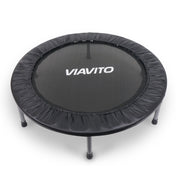Is your desk job making you fat?
Chances are, it certainly isn’t helping you lose weight! Whilst highly unlikely to be the root cause of weight gain, sedentary occupations, involving most of your working day planted firmly on your backside, have long been linked to the ever-climbing numbers on scales. The less you move, the less calories you burn – it really is that simple of an equation.
Calories in, calories out
Burning calories happens in all of us. From watching your favourite sitcom on the television burning on average 65 calories per hour, to belting out the new Harry Styles tune, which you secretly have a soft spot for, burning around 10-20 calories per hour – energy expenditure is part of the human experience. The issues arise when your ‘calories in’ regularly outweigh your ‘calories out’ – you’re eating and drinking a little too much (or perhaps just calorie dense foods!) without compensating with exercise.
Top 20 best calorie-burning jobs in the UK
With working life dominating much of our collective time (on average 253/365 days a year), is it any wonder that certain professions naturally lend themselves to being more of a calorie burn than the classic office role?
The health and fitness experts here at www.sweatband.com, have conducted research to find out the top UK professions for passive calorie burning.
As part of the research, it was found that over two-thirds of desk-working respondents felt they fell into either the ‘obese’ or ‘morbidly obese’ categories (68%). The study also found that respondents working primarily sedentary roles were 74% less likely to undertake exercise after work than those in more active professions.
Our research revealed that some professions really do put the ‘work’ in ‘workout’:
- Firefighters – 5,080 calories per day (1,300,480 per year)
- Forestry – 4,900 calories per day (1,239,700 per year)
- Housekeepers – 4,480 calories per day (1,146,800 per year)
- Fitness instructors – 4,128 calories per day (1,056,768 per year)
- Roofer - 4,000 calories per day (1,000,000 per year)
- Farming - 3,808 calories per day (963,424 per year)
- Refuse workers – 2,840 calories per day (727,040 per year)
- Construction – 2,754 calories per day (696,762 per year)
- Retail assistant - 2,544 calories per day (636,000 per year)
- Flight attendant - 2,380 calories per day (595,000 per year)
- Fishing – 2,240 calories per day (566,720 per year)
- Plumber – 2,000 calories per day (506,000 per year)
- Police – 1,632 calories per day (412,896 per year)
- Custodial – 1,600 calories per day (404,800 per year)
- Waiting staff - 1,400 calories per day (350,000 per year)
- Massage therapists – 1,340 calories per day (335,000 per year)
- Dog walkers – 1,272 calories per day (325,632 per year)
- Delivery driver – 880 calories per day (222,640 per year)
- Hair stylist – 840 calories per day (212,520 per year)
- Office worker – 600 calories per day (151,800 per year)
Tony Goldingay, spokesperson for www.sweatband.com, commented:
“Drastic changes to mentality do no not mean drastic changes to activity. You don’t need to be considering a brand-new career path to combat the lower calorie-burning potential of your current role. Small adaptations such as standing, stretching, and pacing once every hour and committing to a plan of activity outside of work hours is all it takes to begin turning your life around.
“The average 30-minute stroll burns between 100-200 calories, this is an easy adaption for a large portion of people without any physical exercise during their work weeks, so is using stairs, if you use an escalator or a lift on your way to work, trade it in for as many stairs as you can instead. Using stairs is an excellent, underappreciated calorie burner.
“Think multiple small changes, not one big change, this will help almost anyone begin to reap the long-term health benefits associated with keeping the scales in check!”

